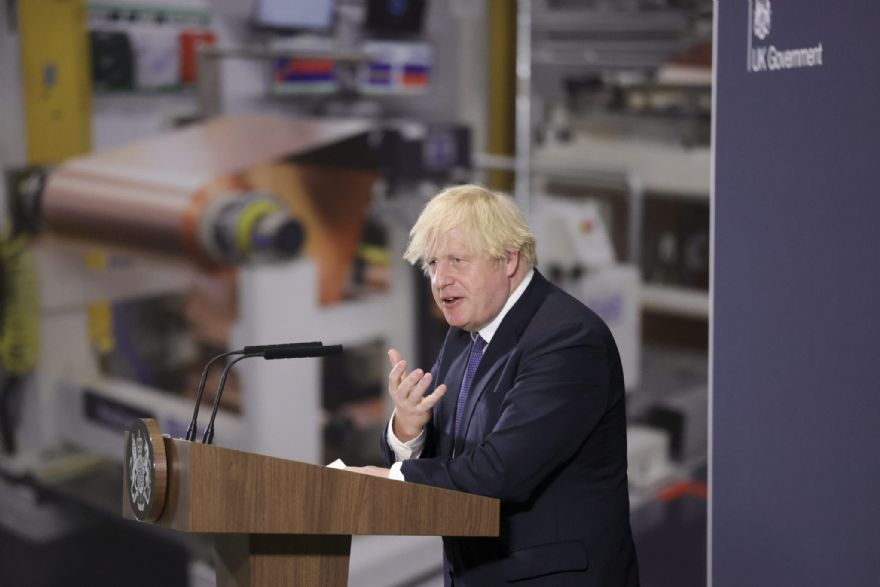
The new £130 million 18,500m
2 Battery Industrialisation Centre (UKBIC) in Coventry was officially opened by the Prime Minister Boris Johnson last week.
The ‘state of the art’ national facility has been developed to support UK industry with development of battery technoogies for future electrification. This will support the UK’s ambitious climate change targets, which includes achieving ‘net zero’ carbon emissions by 2050 and, for the automotive sector, an end to the sale of petrol and diesel cars and vans by 2030.
UKBIC can be used by any organisation working on batteries for electric vehicles, rail, aerospace, industrial and domestic equipment and static energy storage, who can benefit from finding out whether their advanced technologies can be scaled up successfully before committing to the huge investment required for mass production.
The facility employs more than 80 battery technicians, engineers, and support staff, with plans for that number to grow to support future project partnerships with industry and research organisations.
Speaking during his visit, Mr Johnson said: “UKBIC is a beacon of innovation and ingenuity, shining the way for a brighter, greener future for the battery sector in the UK. It was an honour to open this world-class facility and I cannot think of a more fitting backdrop here in Coventry to speak about the Government’s ambitious agenda to level up across the UK.
“This facility will help to deliver green growth and jobs as industrial demand accelerates in the UK battery sector. With the technology and Government-backed expertise on offer right here in Coventry, I have no doubt that UKBIC will become a world leader in the industry.”
Jeff Pratt, UKBIC’s managing director, said: “I am delighted that UKBIC is open for business. Completed at deliberate speed during the pandemic, the facility is a key part of the UK Government’s Faraday Battery Challenge, created to fast track the commercialisation of cost-effective, high-performance, durable, safe, low-weight and recyclable batteries.
“The battery manufacturing equipment installed covers the whole production process from electrode manufacturing, cylindrical and pouch cell assembly, to formation aging and testing and battery modules and packs. The facility is also a training centre to upskill the UK battery sector.
“The importance of the battery sector to the UK economy cannot be underestimated. The Faraday Institution believes that the equivalent of seven large gigafactories will be needed in the UK and employment in the automotive industry and battery supply chain could grow from 170,000 to 220,000 by 2040.
“As we all look to recover from the impact of Coronavirus, we have the opportunity to help make the UK a global leader in batteries, with UKBIC and the Faraday Institution supporting the UK battery industry to become world leaders.”
In addition to funding from the Faraday Battery Challenge through UK Research and Innovation, UKBIC is also part-funded through the West Midlands Combined Authority. The project has been delivered through a consortium of Coventry City Council, Coventry and Warwickshire Local Enterprise Partnership and WMG, at the University of Warwick. UKBIC was created in 2018 following a competition led by the Advanced Propulsion Centre with support from Innovate UK.
Ian Constance, CEO of the Advanced Propulsion Centre said: “It was a great opportunity to be able to share with the Prime Minister the important role the Advanced Propulsion Centre, UKBIC and the Faraday Battery Challenge can play in the Government’s plans for a green industrial revolution.
“There is billions of pounds of opportunity in the UK to manufacture the low-carbon technology needed by the automotive and clean-tech sectors. Recent announcements by Nissan and Stellantis to expand their electric vehicle operations here demonstrate the UK’s globally recognised expertise and capability in clean innovation.”
He concluded: “We are continuing to build on the work we have already done to accelerate the UK’s low-carbon ambitions, which will lead to even more jobs and lower carbon dioxide emissions.”